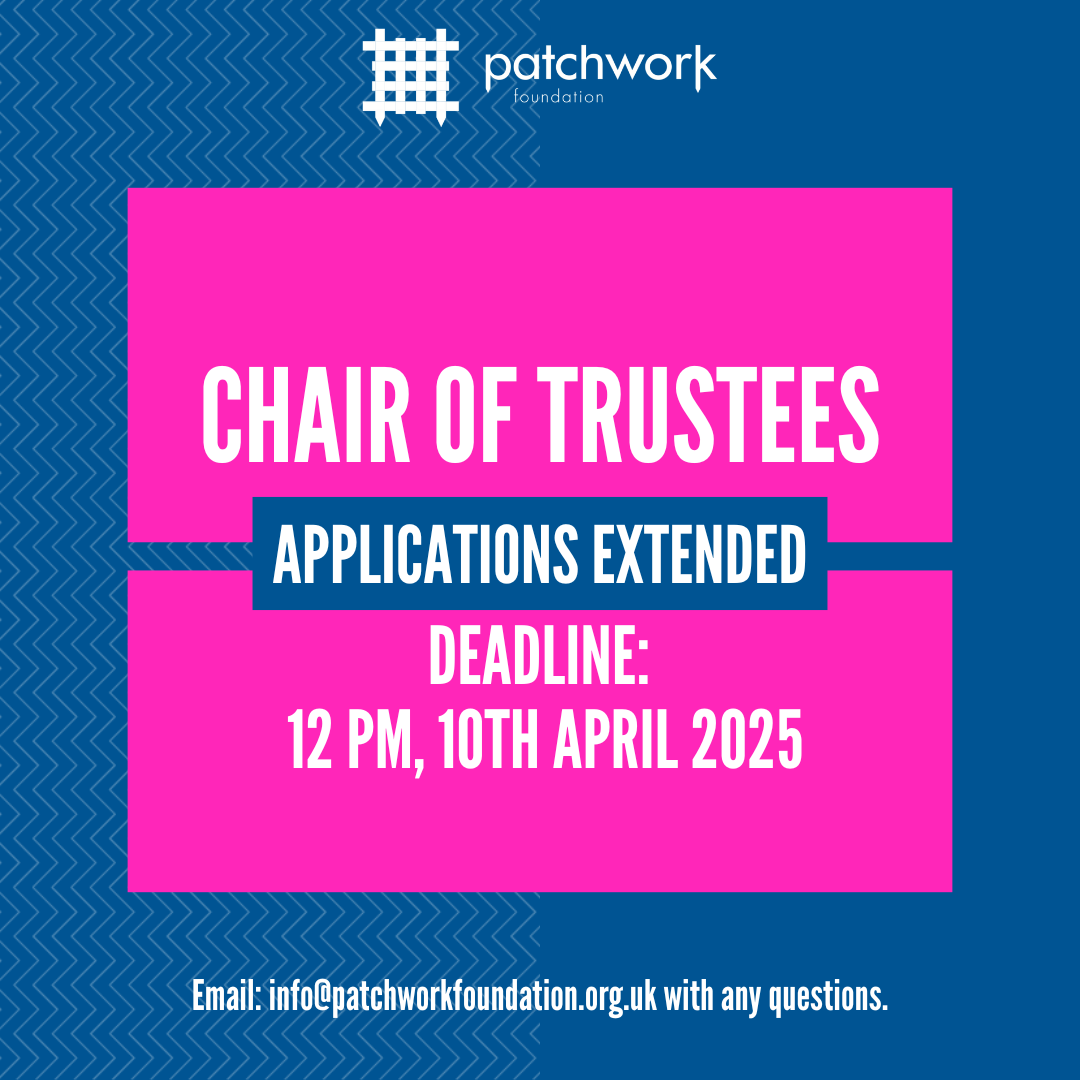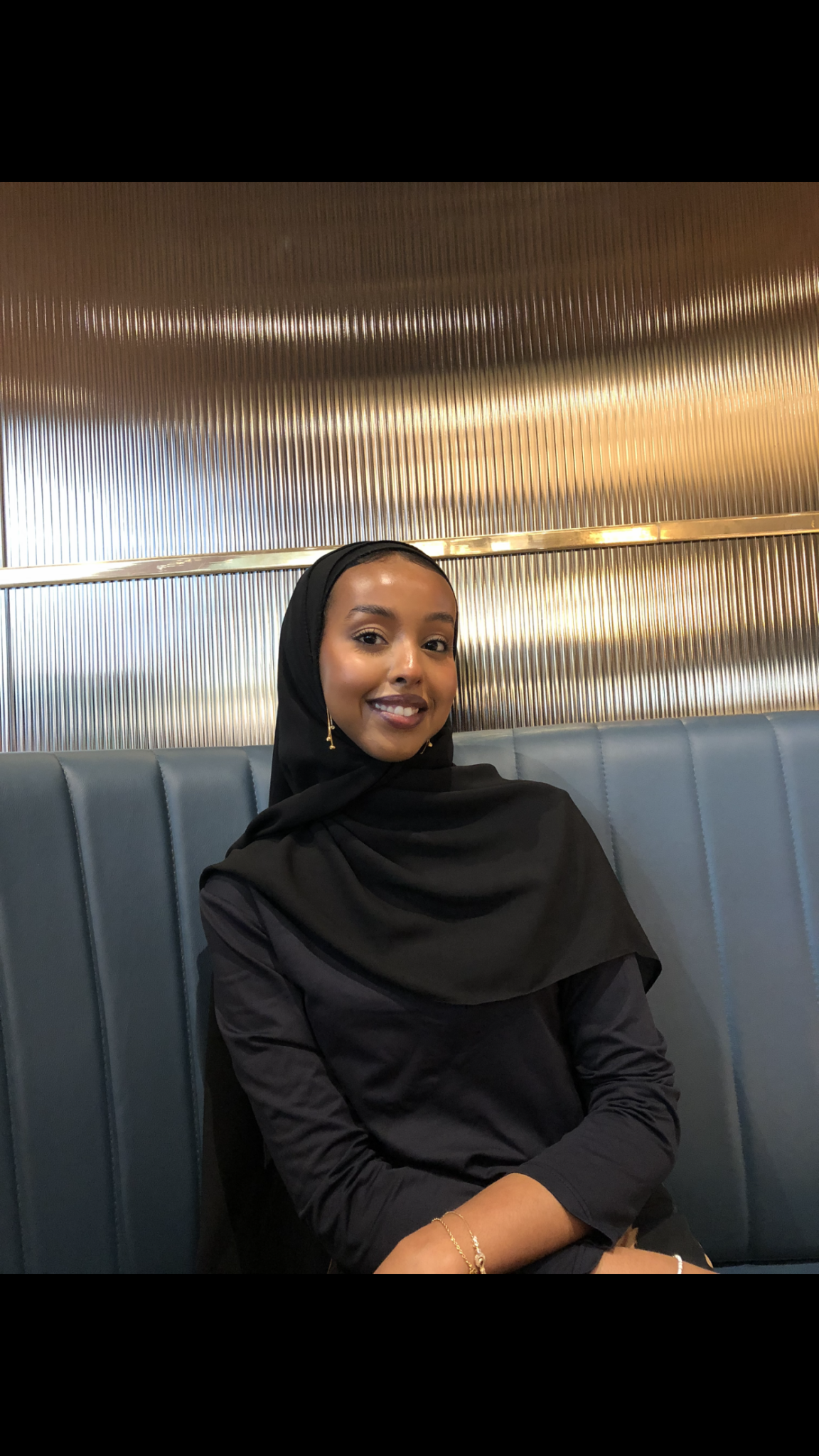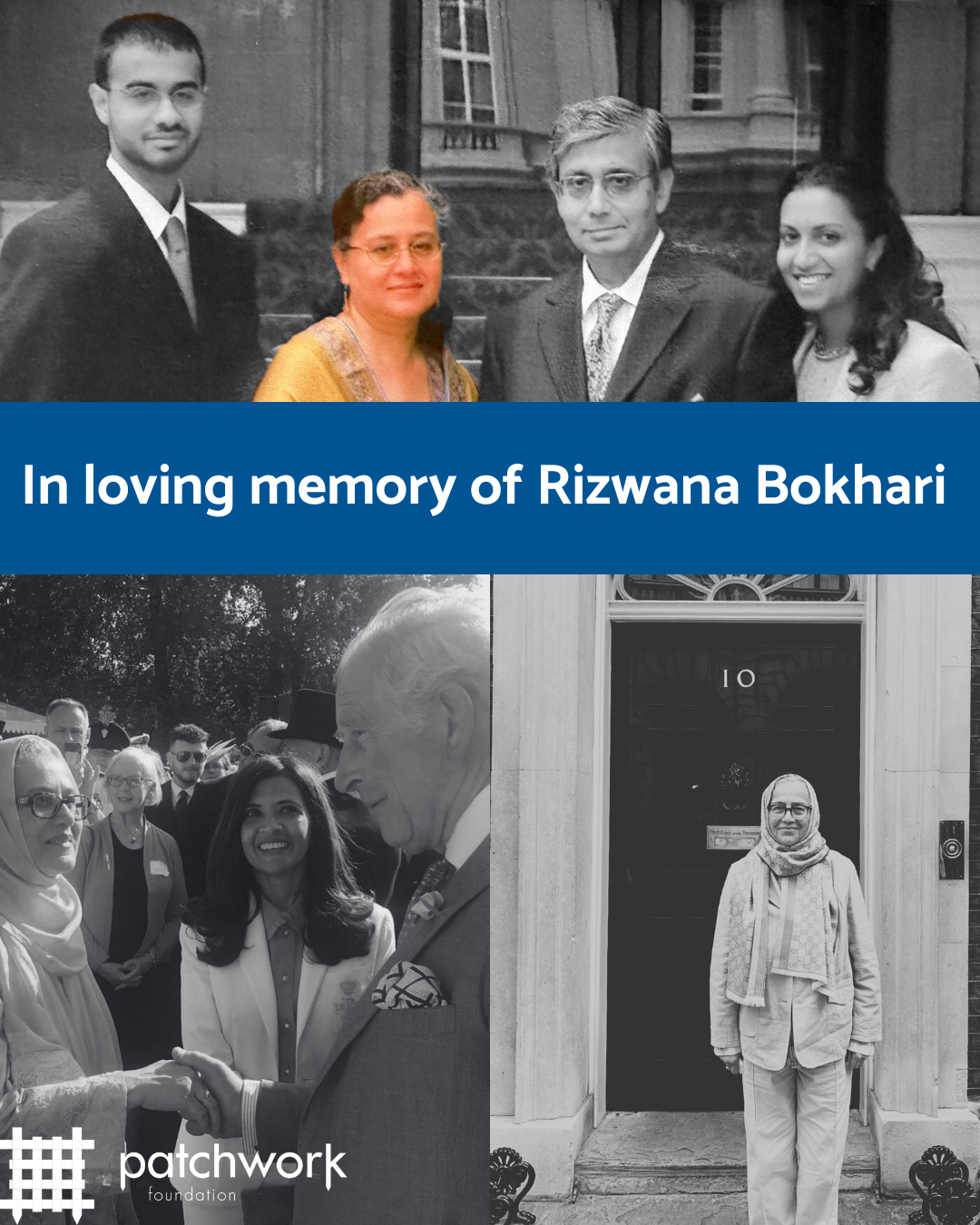”I am proud to support the ground breaking work of the Patchwork Foundation. Patchwork is one of the few organisations I know that trains young people from diverse backgrounds on political campaigning and then helps them to implement those skills on the doorstep through their GetInvolved programme.”
Alumni Spotlight: Tiegan Bingham-Roberts
Tiegan is a Civil Servant, Volunteer, Diana Award Recipient, and Patchwork Alumni. She grew up in a small town in Gloucestershire and studied English Literature at the University of Bristol before entering the world of politics in London.
You seem to be doing everything, everywhere, all at once! Can you run us through what you’re involved with at the moment?
My full-time ‘day’ job is as a Civil Servant working for UK government. I am currently working at the Department for Levelling Up, Housing & Communities in the Westminster office as a Strategy Lead in the Office for Local Government, this is a new role to me that I took up after graduating off the Civil Service Fast Stream early. Outside of this, my part-time charity roles take up a lot of my evenings and weekends!
There are three main organisations that I commit my time and effort to right now: I am a Trustee and Non-Executive Director at The British Youth Council; I am an Alumni Ambassador and Board Member at upReach, and last but by no means least I am a Volunteer for the Patchwork Foundation. Outside of these I do various shorter-term pieces of work which I like to call ‘freelance volunteering’… for instance, helping at events with The 93% Club as an alumni of that charity, or being a member of the Organising Committee for International Youth Day 2023 with the #iwill movement, or drafting a Parliamentary inquiry for the APPG on Youth Affairs, or giving a speech at a UK Youth Sector Advisory Board event.
I am passionate about issues affecting young people because of my own childhood experiences. I grew up attending a state school in special measures at the time, relying on free school meals for fuel to concentrate inside the classroom, my local foodbank at times for fuel beyond the school gates, alongside dealing with a disruptive home environment. At that school though, I threw myself into every opportunity available that offered an outlet for my thoughts, creativity, and desire to connect with people in my community. For most young people, school is the first place they see power and politics with a small ‘p’ at play – in the playground, in assemblies, in school elections, etc. The ability to understand democracy, rights, voice, lobbying, policymaking, Parliament, voting, and many other topics under this umbrella is key to young people feeling able to participate fully in society regardless of their background. It is a privilege that I am able to contribute back to this in my adulthood.
What’s your secret to keeping on top of it all?
It is definitely a struggle to keep on top of these various commitments. I think the time management skills I developed from a young age, due to conflicting priorities like studying whilst working multiple part-time jobs at a time and caring for my younger siblings, have placed me in good stead for my current lifestyle. I genuinely enjoy having lots of plates spinning at once and the challenge of stopping them from smashing on the floor (which has happened before).
My top tip for keeping on top of things is to have very clear and firm boundaries. For example, I prioritise my voluntary commitment with BYC above others because of the legal responsibilities I have and am contracted to follow through with. Through having that boundary in place, it makes it easier for me to say ‘’no’’ when opportunities are presented to me that clash with meetings I have already committed to – no matter how exciting they might sound.
Likewise, I am in a lucky position after years of experience in charities and my career that I can identify what is of value to me and where I am able to add value to others. For example, I have spoken on national TV and radio shows and I still get these media requests sent over, however, I reject them because it is an experience I already have and I would rather create space for another advocate to have their voice heard. I would not be adding any new value to a conversation, so this seems like the best outcome for all parties.
It is about pursuing opportunities for personal and professional growth when a gap exists, and then when its filled and when you have given all the advice/support you can to something, move on to ensure your energy is being channelled in the right direction and innovation can happen from allowing newcomers to join in.
As a Civil Servant, you have to remain politically neutral. How do you remain involved in politics and democracy, and what advice can you give other civil servants wanting to engage further?
Before joining the Civil Service I was worried what the ‘Civil Service Code’ really meant and whether it would have an impact on my identity or values. Since joining in July 2021, however, I have learnt this is not the case at all. Being political neutral means to be neutral in carrying out important work on the government on the day – to not sabotage projects or offer biased advice based on party political beliefs. I have found it extremely easy to be neutral in practice at work because advice I give has always been founded on evidence and conversations with a diverse range of stakeholders; my advice has never come solely from my own mind or echo chamber.
Outside of work-based scenarios, it does get a bit more difficult. I have to ensure that any events I attend with young people at The British Youth Council for example are on cross-party issues such as the flagship Votes at 16 campaign, and I will abstain from publicly commenting on anything favouring one flavour of government.
I have also been able to attend both the Labour Party and the Conservative Party conferences with Patchwork because I informed my managers about them in advance and discussed the learning and development opportunities associated with them. I think this is the key to striking the right balance between the code and opportunities – discuss with others in your organisation to sense check and spell out the non-party political benefits you will gain from the experience. After attending conferences, I felt so much more confident in meetings with Ministers at work because I had met so many of them already.
Congratulations on being awarded the Diana Award! Can you tell us a little more about the award, and why you were nominated? What does this award mean to you?
Over a decade ago I made my small steps into the charity world and voluntary roles outside of school. Sometimes it feels like I have blinked and suddenly gone from being the young girl who graphic designed posters for small charities, handed out leaflets in the street whilst holding a donation bucket, baked and decorated cakes for school bake sales and non-uniform days, and campaigned in my local community in Gloucestershire for causes I care about… to being the woman I am today who has been able to speak in Parliament, network with people from around the world over fancy canapes, meet famous faces, attend board meetings and offer advice that impacts huge funds and projects. Not to mention being able to casually tell friends and family that I will ‘be busy at 10 Downing Street today’ thanks to Patchwork.
I really enjoy getting stuck into charity work but behind the scenes are definitely lots of not-so-glamorous things that other Patchwork Alumni can relate to: the late nights travelling back on the tube or train from evening events looking very dishevelled with numerous bags (I have not learnt the art of condensing down my belongings yet when I have three different places to be in the space of one day); the weekends I have spent replying to emails and making PowerPoint slides or briefing packs or writing a speech for one charity or another; and turning up to my office looking like a zombie after late night Zoom calls to name a few.
I received my Diana Award for my contributions over the past few years to make UK government more accessible to young people from underrepresented backgrounds in the political sphere. Princess Diana embodied what it means to use the platform one has been given in a positive way. She was a strong believer in the power of youth voice, so to have been presented an award in her honour for my own work with young people was very surreal and emotional, and this was made even more surreal by attending a Special Masterclass with Patchwork that was hosted inside the room she gave her BBC Panorama interview in at Kensington Palace (I feel particularly emotional right now having just finished watching the latest season of The Crown). Moments like receiving my Diana Award gave me permission to take a step back and be proud of myself, and to slow down a little.
You graduated from the Masterclass Programme in 2021, and have been a volunteer for us ever since. What advice would you give to current or future Patchworkers on how to make the most of the Programme?
The catchphrase that the Patchwork team give at every induction session rings true: ”you get out what you put in”. I joined Patchwork in February 2021 as a university student in my final year of an English degree, balancing pre-meets and thank you notes and Masterclass sessions themselves in-between seminars and dissertation writing. By the time I graduated in December 2021, I was in my first Civil Service role at the Department for Environment and about to start another on promotion at the Department for Education.
I can categorically say that I would not have had the confidence to even apply for that promotion role if it had not been for Patchwork and other charities that supported me. One week before my DfE job interview I attended a Masterclass with The Rt Hon Nadhim Zahawi (Secretary of State for Education at the time)… the significance of having conversed with such a senior figure in the Department at that moment cannot be underestimated! I told myself that if I was able to confidently hold eye contact and ask questions to him, then I should definitely be able to do the same with my interviews, and I did.
I advise Patchworkers to do all of the research needed, write thank you notes that would warm your heart if you were to receive them from a young person yourself, act professionally but personably with the speakers, be open to new friendships with your peers, and sign up to any additional sessions that you have the capacity for. Please spend time properly reflecting on each Masterclass and what you have learnt from it and apply those reflections to the future. Some advice a colleague once gave me is that in such a fast-moving career landscape for young professionals you have ”cash in your chips” when you can because you can ”only cash them in once”. My interpretation of this was that we should act on follow-up emails/messages or apply for related opportunities whilst the iron is still hot, and to not become complacent in trying to cash in ”old chips” for our entire careers but instead always seeking to acquire new ones.
Stay updated
Join our mailing list to stay up to date with all the latest!
Latest news
Testimonials




